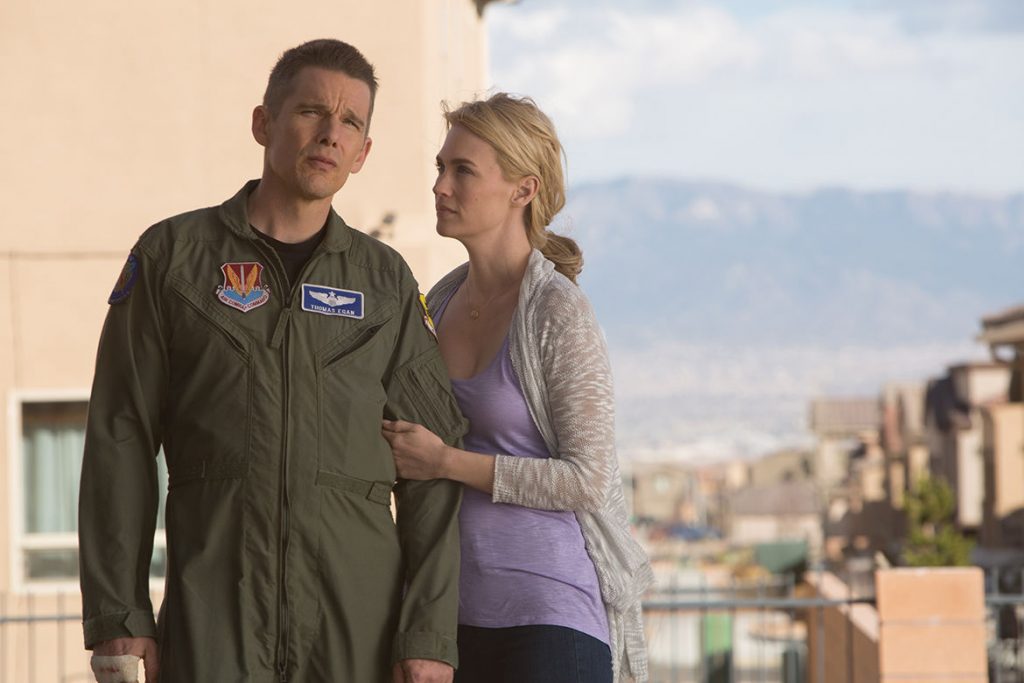One of the great ironies of the wars in Iraq and Afghanistan has been that our military can engage in longer conflicts than ever, while losing only a fraction of the numbers who were killed during World War II and Vietnam.
Aside from improvements in soldiers’ defensive gear, a major element in the successful reduction of troop deaths has been that boots on the ground have been replaced by mechanized eyes in the sky — otherwise known as drones.
Yet these seemingly simple weapons carry a great deal of ethically complex baggage. The men and women who launch missiles from unmanned drones half a world away may appear to be living a dream life in which they can kill the enemy for 12 hours and then drive home to their families each night, but the psychological toll their work takes on them can be just as devastating as if bullets were flying by their heads.
The supposedly safe and simple use of drones in warfare is also being sold to citizens as a gateway to their use for surveillance by law enforcement and in more efficient commercial delivery of products from corporate giants such as Amazon.com. Yet the new movie, “Good Kill,” starring Ethan Hawke as a Catholic drone pilot and married father whose guilt slowly starts to drive him crazy, points out that while drone warfare may have begun with good intentions, there are potentially serious ramifications for us all.
“I was really interested in the character in the movie because we’ve never asked soldiers to do what he does, which is go to war with the Taliban 12 hours a day, then go home to his wife and kids and repeat the next day,” says Andrew Niccol, writer-director of “Good Kill,” which was made on a low budget due to its controversial subject matter.
“I was interested in the psychological toll on this new generation. I spoke with ex-drone pilots, and there’s no shortage of them because there’s so much burnout. Someone like Ethan’s character, who was an F-16 fighter pilot, could drop munitions and fly away,” he said.
“Drone pilots drop bombs and then have to sit and watch the damage they caused for damage assessment — counting the dead,” Niccol continues. “That’s got to have a toll. It’s a new schizophrenic type of warfare: kill the Taliban, then take a 30 minute drive home on the freeway.”
Indeed, “Good Kill” provides a subtle yet riveting portrait of this new world facing America — one in which our defense contractors keep creating ever more inventive ways to kill people in foreign lands while appearing to save our soldiers from harm in combat.
“It’s been an interesting response to the film so far, because we played the Venice Film Festival and found we were accused of being too anti-American, yet in Europe we were accused of being too pro-American, even though I’m not American,” says Niccol, a native of New Zealand.
“I come at it from a humanist point of view, and the drone warfare issue is bipartisan because it started under Bush and escalated under Obama. There’s a lot of support for drone warfare, but whether you think you’re an advocate or opponent, this movie will move you to think and educate people to what is actually happening.”
Niccol has a long history of being on the cutting edge of technology and the ethical debates that go with it, having written the 1998 classic, “The Truman Show” shortly before the explosion of reality television. He also explored the issue of human genetic engineering in the movie, “Gattaca,” which he both wrote and directed.
Niccol feels that “Good Kill,” a character-based film with an extremely down to earth sensibility, has many parallels to “Gattaca.” That movie also starred Hawke, as a young man who dreams of being an astronaut but has to fight for his rights to study for the job because a genetic test given at birth has labeled him as having a poor heart, resulting in his being treated as second-class by society.
“In ‘Gattaca,’ I’m drawn to the ambiguity in life, because the thing about genetic engineering is that you can do wonderful things and cure diseases, but the flip side comes once you start enhancing people to make your son 6’4” and have blue eyes,” says Niccol. “A drone program can be really precise, but we can really precisely kill the wrong people. We always need to consider the duality of these things.”
And while Niccol harbors no illusions that his limited-release film can stop the use of drones, he’s happy to just make people stop a moment and put some thought into the world and just war and how they want to see it run.
“To be anti-drone is not to say you’re anti-Internet,” Niccol concludes. “Neither one is going anywhere, they’re new tools and the question is how responsibly you use it. That’s the conversation I hope we’ll have out of the movie.”
“Good Kill” opened May 15 in select theatres throughout the Los Angeles area.

